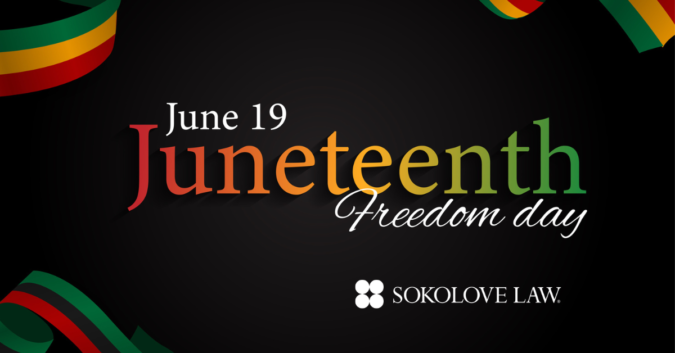Abraham Lincoln issued the Emancipation Proclamation on January 1st, 1863, ordering the liberation of nearly 4 million enslaved African Americans in the Confederate South. Despite the symbolic triumph of that order, it would be another two-and-a-half years before southern slaves were actually set free.
Today, the actual date of black emancipation is commemorated as Juneteenth, and in 2021, the day was officially made a federal US holiday. “Juneteenth” refers specifically to the date of June 19th, 1865, when slavery was abolished by decree in the state of Texas, but it has come to symbolize the date of liberation for the entire enslaved south.
The history of America is forever linked to the history of slavery, and while that reality is set in stone, the future does not have to be.
However, the legacy of slavery persists and inequalities are woven into the fabric of American history. Glaring inequality exists in many areas of American life, including income, employment, criminal justice, and healthcare. One major area where this disparity is especially evident is in childbirth.
Juneteenth marks an opportunity to highlight some of those issues while also acknowledging how far we’ve come.
Giving Birth as a Black Mother
Data from the U.S. Centers for Disease Control and Prevention (CDC) shows that black mothers are 3 times as likely to die during pregnancy or from birth-related injuries than white mothers.
According to the CDC, on average, for every 100,000 births by white mothers, there are 13.4 deaths. By comparison, for every 100,000 births by black mothers, there are 41.7 deaths. This disparity reflects a systemic issue. As Fleda Jackson, PhD, notes in the documentary The Naked Truth: Death by Delivery:
“Black women are treated differently because of the color of their skin….Many don’t know their rights and suffer abuses, and they don’t have insurance. And they also suffer from sexism. They are Black and they are women. There is no rest for them in these circumstances.”
In addition, black women living in poorly funded urban communities lack access to healthy food and safe drinking water and suffer from unsafe living conditions with high crime rates. Such areas bear long histories of limited access to quality education and well-paying jobs. In general, historical segregation has led to poorer hospitals with substandard care and higher rates of life-threatening complications.
Given the living conditions in some urban areas, black women are also more likely to be uninsured or under-insured while at the same time suffering from chronic health conditions such as obesity, diabetes, and hypertension — all of which dramatically increase the risk of health complications during pregnancy and birth.
The Inequality of Birth Injuries
Birth injuries are classified as any form of harm that comes to an infant as they are born. These types of injuries can damage a baby’s brain and/or body.
One of the most common types of birth injuries, cerebral palsy, has been found to occur at a higher frequency among black newborns than newborns of other races.
According to a 2012 study that investigated rates of cerebral palsy among black and white newborns:
“Black children in the United States appear to have a higher prevalence of cerebral palsy overall than white children.”
The study shows that for every 1,000 black newborns, roughly 4 are diagnosed with cerebral palsy. According to the authors of the study, the disparity between black and white babies may be due to race-based risk factors, access to interventions, and under-identification of cerebral palsy due to substandard care.
As a birth injury law firm, Sokolove Law dedicates a substantial portion of its practice to birth injury cases. Our birth injury lawyers work to support black mothers impacted by the injustices of this system day in and day out.
Sokolove Law Is Committed to Doing the Work Today — and Every Day
Through its legal services and decades-long commitment to providing equal access to the justice system, Sokolove Law is deeply committed to assisting victims who need help the most. For more than 45 years, our firm has prided itself on sticking up for the voiceless in the face of harm.
All too often, the people who are harmed by the cold and calculated profit-seeking of large, multinational corporations are everyday Americans who come from underrepresented and underserved communities — often communities of color.
For generations, companies were built on the exploitation of their own laborers, harming their employees by forcing them to work at potentially hazardous job sites and exposing them to unsafe working conditions. Moreover, such companies often develop, manufacture, and sell untested or dangerous products to the public.
In part, it’s for reasons like these that generational poverty and racism, and cultures of oppression persist in communities of color, and why Sokolove Law has dedicated itself to leveling the playing field between victims and the companies and institutions who have harmed them.
Only by working together can our country begin to heal the equality and equity issues that have plagued minority communities for generations. Now is the time for everyone to step up and do their part.
